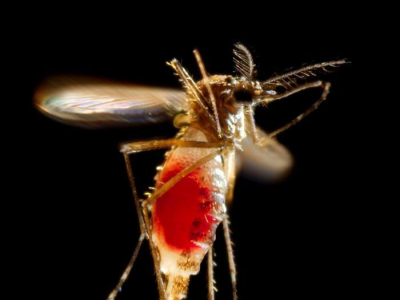Sen Bill Cassidy, MD, who chairs the Senate Health, Education, Labor, and Pensions (HELP) committee yesterday announced a hearing for September 17 to hear from the recently fired Centers for Disease Control and Prevention (CDC) director Susan Monarez, PhD, and one of the top-level CDC officials who recently resigned.
In other developments, New Jersey’s governor issued an executive order to ease COVID vaccine access in light of confusion surrounding new federal policies, and a group led by Health and Human Services (HHS) secretary Robert F. Kennedy, Jr., released a Make America Healthy Again (MAHA) strategy aimed at children’s health, which partly focuses on vaccine issues, prompting concerns from health groups.
HELP committee to hear from recently ousted CDC director
On August 27, the White House fired Monarez just weeks after she was sworn in the CDC’s new director. Kennedy asked her to resign, following a clash over vaccine policy. In a letter from her lawyers, Monarez said she was targeted because she refused to rubber-stamp unscientific, reckless directives. She also accused the HHS of weaponizing public health for political gain and putting American lives at risk.
At a fiery Senate HELP committee hearing on September 4, Kennedy said Monarez lied about her ouster.
In a statement, Cassidy—a physician and strong vaccine proponent who cast the key vote in Kennedy’s confirmation—said children’s health must be the top priority and thanked President Trump and Kennedy for making radical transparency a priority. “To protect children’s health, Americans need to know what has happened and is happening at the CDC. They need to be reassured that their child’s health is given priority. Radical transparency is the only way to do that.”
At next week’s hearing, the group will also hear from Debra Houry, MD, MPH, CDC’s former chief medical officer who resigned as Monarez was fired. He also said the committee would invite HHS officials to respond at a future hearing.
New Jersey issues COVID vaccine order
The New Jersey Department of Health yesterday issued an executive order allowing anyone ages 6 months and older to receive the updated COVID vaccine for the upcoming respiratory virus season. The health department also issued a standing order that allows New Jersey pharmacists to administer the vaccine without a prescription to anyone ages 3 years and older. Younger children can receive the vaccine from a health provider.
In a statement, Gov Phil Murphy said, “At a time when COVID-19 cases are increasing across the country and as part of my Administration’s dedication to evidence-based public health action, I am committed to ensuring everyone in New Jersey who wants to receive a COVID-19 vaccination can receive a dose this fall from trusted health professionals.”
The FDA recently narrowed approvals to people ages 65 and older and others with underlying health conditions. Also, the CDC narrowed its recommendations for children and pregnant women. The two agencies made the decisions without the normal review process, which has triggered confusion and uncertainty.
Other states such as New York and Minnesota have made similar COVID vaccine orders to ease immunization access.
MAHA report sets sights on childhood vaccine issues
Yesterday the Trump Administration’s MAHA Commission released its strategy to make children healthy again, which includes 120 initiatives intended to lower the level of chronic childhood diseases, some of which question the use of vaccines, which immediately received pushback from some health groups.
Some of the measures have been well-received, such as raising awareness about nutrition, including education about certain food additives and the impact of ultraprocessed food. The report also points out the need to address declines in physical activity and mental health.
However, it also charges that doctors are overprescribing medicine for children due to conflicts of interest. Under that category, the group singled out the childhood vaccine schedule and questioned if the number of vaccines contributes to rates of childhood chronic diseases. “Vaccines benefit children by protecting them from infectious diseases. But, as with any medicine, vaccines can have side effects that must be balanced against their benefits,” the 73- page report said. “Parents should be fully informed of the benefits and risks of vaccines.”
They press that more research is needed into the links between vaccines and chronic disease, impacts from vaccine injury, and conflicts of interest in setting the vaccine schedule. According to the group, industry interests are playing an outsized role in contributing to chronic illnesses in children.
The group also questioned childhood vaccine mandates and raised concerns about negative consequences for doctors who deviate from recommended immunization schedules. It also signaled the need for more clinical trials on vaccine safety, and any links to chronic diseases and what they see as problems with vaccine safety data collection and the National Vaccine Injury Compensation Program.
Some healthcare groups responded to the report, including the Infectious Diseases Society of America (IDSA), which said the MAHA report underscores the vital role of infectious disease and public health experts in improving children’s health. The group’s president Tina Tan, MD, said reducing the chronic disease burden can’t be done without infectious disease care and research.
“Infectious diseases can contribute to the development of chronic diseases, and those who have chronic conditions are at increased risk for infections,” she said. “Physicians who specialize in infectious diseases are absolutely critical to preventing and managing chronic diseases.”
However, Tan raised concerns about the direction of federally funded into the causes of autism, which she said must be based on credible science and “not reach premature, inaccurate or preordained non-scientifically based conclusions.” She emphasized decisions about vaccine policies should be made by objective experts in vaccines.
Pharmaceutical Research and Manufacturers of America (PhRMA) president and CEO Stephen Ubl, in a statement welcomed the Trump administration’s commitment to tacking chronic diseases in children and said the industry is committed to using the best data, evidence, and tools like artificial intelligence to safely expedite the research, development, and review of medicines.
“It’s concerning however that the report casts doubt on the very things that have helped protect and improve health for generations,” he said. “Americans should have access to every option at their disposal to safeguard the well-being of children—including medicines and vaccines that prevent and treat disease. Undermining these advances risks reversing decades of progress.”
















